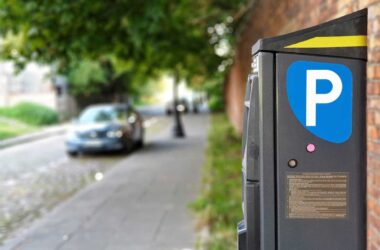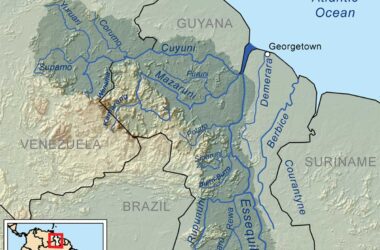When Michael Jackson, in 1992, pleaded in song to “heal the world, make it a better place, for you and for me and the entire human race (because) there are people dying,” climate change was not a big thing then.
When compared to the time of its release, 23 November 1992, this song is just as appropriate today as it was back then. The reasons that caused Jackson to pen this smash hit are still with us today, only this time around we are faced with an even greater problem, described in two words: Climate Change, the buzz words of today.
These two words emerged from the climate summits held by the United Nations for governments to agree on steps to limit global temperature rises. They are referred to as COPs, which stands for “Conference of the Parties”.
The original United Nations climate agreement was in 1992 where 197 nations agreed to the Framework Convention on Climate Change.
This year was COP27, held in Egypt.
World leaders, for the past 30 years have attempted to fight climate change on a serious level, making all kinds of promises and signing agreements detailing what should be done to save the world from the climatic conditions torturing it today.
Despite these promises and agreements, little, if any, concrete action has been taken, over the years, to seriously address climate change.
What is climate change?
The phase refers to long-term shifts in temperatures and weather patterns. These shifts may be natural, such as through variations in the solar cycle. And by natural we also mean what took place on the 6th of this month when just over two hours of heavy rainfall caused severe damage to certain parts of the northern quadrant of the island.
It must be noted that human activities have been the main driver of climate change, primarily due to the burning of fossil fuels like coal, oil and gas.
Burning fossil fuels generates greenhouse gas emissions that act like a blanket wrapped around the Earth, trapping the sun’s heat, and raising temperatures.
Examples of greenhouse gas emissions that are causing climate change include carbon dioxide and methane. These come from using gasoline for driving a car or coal for generating electricity, for example. Clearing land and forests can also release carbon dioxide. Landfills for garbage are a major source of methane emissions. Energy for industry, transport, buildings, agriculture and land use is the main cause of emissions.
We all know the countries which are the main emitters. Caribbean countries are not in that group at all yet are significant sufferers from the effects of climate change. How, therefore, do we survive the impacts of climate change as islanders?
To survive climate change we must first change our attitude, our thinking about how we dispose of unwanted stuff. Saint Lucia is a country very vulnerable to climate change, hence the need for citizens to create ways in which to lessen that vulnerability.
While we understand we would need a whole lot of money to make Saint Lucia disaster resilient, we must remind ourselves that our actions, in the way in which we dispose of our waste, including bulk waste, the type of homes we build in disaster prone areas, the type of materials used in the construction of homes, the place where we build homes, etc., all combine to cause greater damage to our lands and personal properties, when heavy rain falls, like what we experienced on 6th of this month.
It has been reported that the Earth is now about 1.1°C warmer than it was in the late 1800s and that the last decade (2011-2020) was the warmest on record.
Many people think climate change mainly means warmer temperatures. But temperature rise is only the beginning of the story. Because the Earth is a system, where everything is connected, changes in one area can influence changes in all others.
The consequences of climate change now include, among others, intense droughts, water scarcity, severe fires, rising sea levels, flooding, melting polar ice, catastrophic storms and declining biodiversity. The consequences of the 6 November 2022 floods in the north of the island were part of climate change.
A united effort is therefore needed by all of us if we really want to prepare our small island to be resilient to the impacts of climate change.
We are calling on government to put together a framework that would enable Saint Lucia to unlock the type of financing that we need to undertake the type of action needed to fight climate change, because if we don’t do that and do it now for immediate results, then expect more of the same that took us all by surprise on the 6th of this month.





